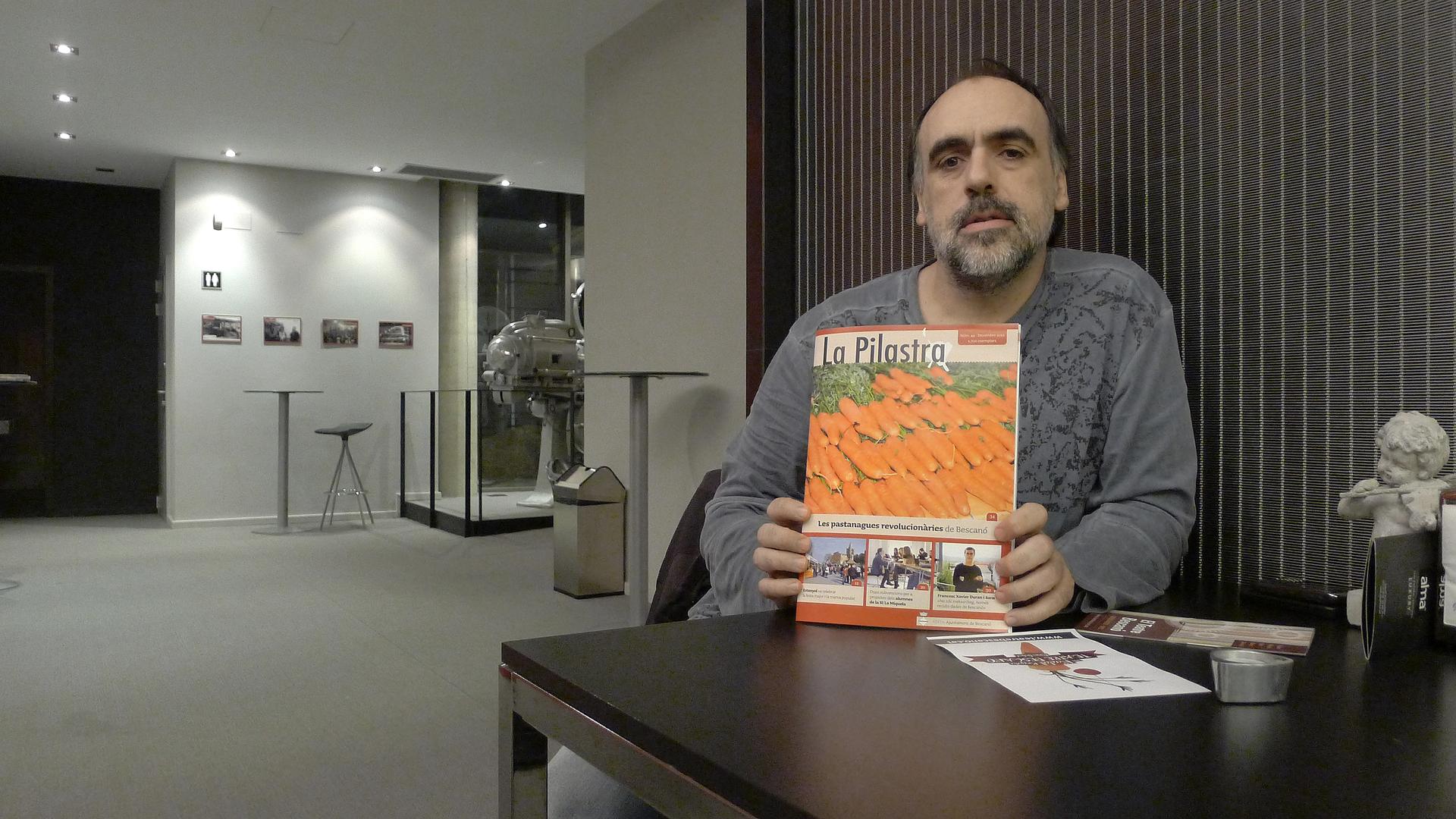Spanish turning to carrots to protest higher taxes on cultural events
To protest Spain’s new tax on cultural events, Quim Marce at the Bescano Theater, pictured, sold carrots instead of tickets. (Photo by Gerry Hadden.)
In Greece over the weekend, someone shot bullets into the empty headquarters of the ruling New Democracy party, amidst more signs of violence in the crisis-stricken nation.
Across the Mediterranean, the Spanish are also protesting against austerity as well. But in a very different way.
A carrot rebellion may be underway.
It started at small theater in the northeast Spanish town of Bescano. Bescano isn’t on a lot of tourist maps. But last October it made the news around the world because, one night, instead of selling tickets for a play, it sold carrots. For the same price.
Carrot-holders could then get in to the performance for free.
It was a protest against the tripling of the sales tax on cultural events. And a way to skirt it. Tax on produce is much lower — 4 percent compared to 21 percent for theatre tickets.
The theater’s director, Quim Marce, said he and staff thought for a long time about what to use as a substitute ticket. They thought of pens. But taxes have gone up on schools supplies too.
Then they decided: vegetables.
“Of all the produce, the carrot struck us as the most ridiculous,” Quim said. “We were hoping to get local media attention. But the whole world came.”
By all measures, it was a perfect protest — and publicity stunt. But Marce did it just once, afraid tax authorities would fine him for his protest. Now. six months later, he said the crisis has only worsened. Journalists have long forgotten him, his audience has dwindled, promised government subsidies haven’t materialized. The Bescano is barely staying open.
This year might not be the last, Marce said, but only because the town pays for some shows.
“Well likely go from hosting about 50 events,” he said, “to just hosting the end of the school year celebration and the town Christmas pageant.”
Marce said since the tax on theater tickets went up, sales are down by 40 percent nationally. Some of the country’s most important theaters are laying off staff and threatening to close altogether.
But hardest hit are small theater companies, like one called Pocacosa.
Pocacosa’s two principals, Meritxell Yanes and Elena Martinell, are currently staging a play for kids — about a cow that wants to sing opera.
Between shows, Yanes took a reporter to her home, a small space above an abandoned tanning factory. There, she said, she keeps warm by the heat of a pellet stove, and eats lettuce and onions she grows out back, to save money.
“Up till this year, I was taking home about $2,100 a month,” she said. “Now I’m earning half that.”
Spain is in the fifth year of a crisis involving huge public debts and a crash in property values. Yanes said she’s glad at least that Spaniards have found creative, rather than violent, ways to voice their discontent with austerity measures.
“Each protest is like a mushroom,” she said. “It grows, dies but another springs up. We’re civilized. We’re not out trashing the town, or burning trash bins.”
That does happen at some of Spain’s bigger anti-austerity marches. But Spaniards have also found more offbeat ways to speak out against austerity, tax hikes and the ensuing misery. Besides the locksmith boycott in Pamplona, there are individual drivers who are refusing to pay increased toll charges on highways, then posting their acts of civil disobedience on a popular Facebook page.
And while some angry mobs occasionally storm banks, last week a group of musicians snuck into a crowded unemployment office — not so much to protest, as to brighten some faces.
Suddenly a man began playing the Beatles’ “Here Comes the Sun” on a clarinet. Other instruments appeared, and a singer. The song made people smile and sing along, even though the numbers in Spain aren’t promising.
Unemployment is set to rise again this year, surpassing 26 percent.
For workers in the theater world, the hope is that more venues will sell carrots, to keep prices down. And the idea may just be catching on.
A concert hall in Zaragoza just did the same thing, and a comedy festival is planting carrots now, to sell as tickets at their events in the spring.
